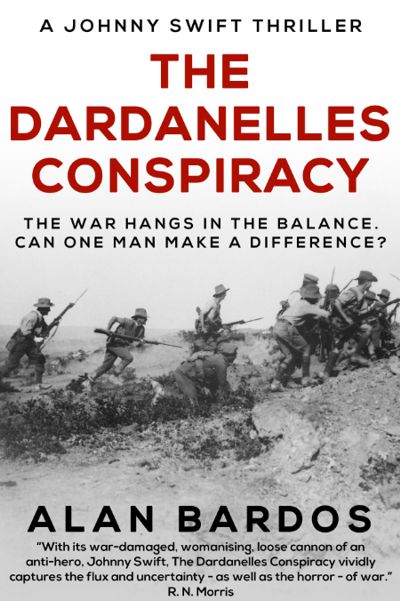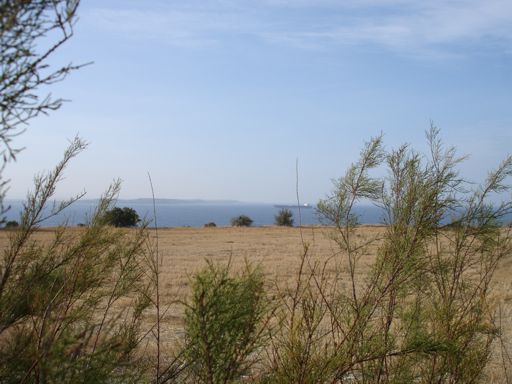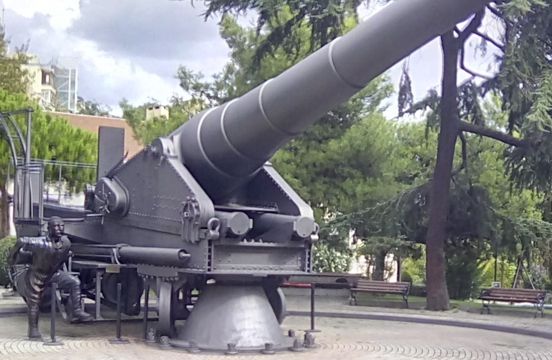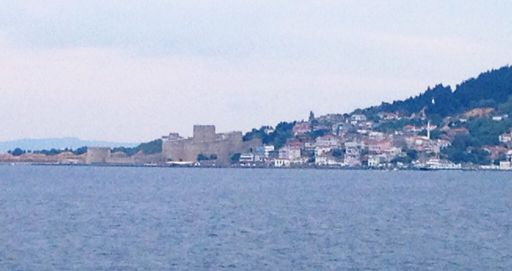
January 1915.
The Western Front has descended into trench warfare. In the East an opportunity arises for the Allies to bypass the stalemate.
Desperate to preserve a truce in his sector of the front and with it the lives of his men, Johnny Swift a reckless former diplomat is caught warning the Germans of a trench raid.
Sir George Smyth, Swift’s former superior has negotiated a stay of execution. In return, Swift is dispatched to Constantinople on a perilous mission to bribe the Turkish government and open the backdoor into Germany.
This does not stop the disgraced diplomat enjoying the delights of the orient, while trying to negotiate the labyrinthine power struggles within the Turkish government.
Swift uses all his guile to complete his mission, but finds his efforts blocked by his old friend and nemesis Lazlo Breitner, now an official at the Austro-Hungarian Embassy.
The agent moves from the drinking dens at the crossroads of the world to the opening battles of the Gallipoli campaign – and with it a chance to redeem his reputation.
Could the Dardanelles Straits have been forced?
The Allied Naval campaign to force a passage through the Dardanelles Straits ended on the 18th March 1915, a decision that has remained a matter of controversy ever since.
The Gallipoli campaign was originally conceived as a naval operation that could be carried out without the use of troops, to clear the costal fortifications barring the Dardanelles Straits. The plan was to gradually reduce the Turkish defences through a systematic bombardment. The way to Russia’s warm water ports, Constantinople (Istanbul) and the backdoor the central powers would then be opened.
The naval bombardment began on the 19th February 1915, the Turkish forts at the entrance to the Straits were destroyed according to plan; but when the Allied fleet tried to clear the defences inside the Dardanelles Straits, things began to unravel.

The Allied fleet were able to suppress the guns defending the Straits for a short time, but the guns could only be destroyed by a direct hit and the fleet was unable to get close enough to finish them off because they were protected by minefields. The clapped out fishing trawlers used as minesweepers were unable clear the minefields because they were protected by batteries of hidden field guns and howitzers. These batteries were extremely hard to find and, when they were the Turks moved them. The Turkish gunners also used decoy batteries of drainpipes that released black smoke every time the main batteries fired.
The naval campaign reached its peak on the 18th March 1915, following intelligence reports that the Turks were running out of shells. The Allied fleet made an all-out attempt to rush the straight and destroy the shore batteries, so the minesweepers could clear the minefields.
Even with the 15’ guns of the super dreadnought HMS Queen Elizabeth, in the van guard, the Allied fleet was only able to temporarily silence the guns. The minesweepers struggling against the tide and subject to fire from the hidden batteries, weren’t able to clear the minefields.
After a furious firefight the attackers were eventually driven off by the Turkish and German defenders, in a unique battle between land and sea forces. The newly arrived Commander of the Allied Expeditionary Force, General Sir Ian Hamilton, described it as ‘the whale and elephant… locked in mortal combat’, paraphrasing Bismarck.

The Allies lost three battleships, the Bouvet going down with the loss of 640 men, with a further 3 so badly damaged that they could play no further part in the campaign. Admiral de Robeck was badly shocked by the loss of some many of his ships in a single action and no further naval attempt was made to force the Straits. A storm erupted the next day and a decision was taken by the commanders on the ground to land troops to clear the defences and spot for the naval guns so they could actually hit the Turks guns.
Whether or not the Allied fleet should have tried again to break through against an enemy running low on shells has remained one of history’s most tantalising ‘what if’ ever since.
However any further attempt to force the Dardanelles would have had a heavy cost in men and ships. Regardless of the amount of shells the Turks had, the minefields were hardly touched and they couldn’t be cleared without destroying the mobile batteries protecting them, which was proving to be impossible. Robin Prior in ‘Gallipoli, the End of the Myth’, gives a particularly good analysis of this point.
Even if the fleet had succeeded in forcing the Straits and reached Constantinople, it is questionable whether the Turks would have surrendered. Or whether it would have been possible to keep the fleet supplied or to send troopships through with the land around the Straits still in enemy hands and the hidden batteries still operational.

If the attempt to force the Dardanelles had been made earlier, when the Turkish defences were unprepared, there may have been a chance to break through and cause the collapse of a divided Ottoman Turk government.
Exploiting the divisions within the government and bribing them into making peace would have been a much more elegant solution, which I explore in my novel ‘The Dardanelles Conspiracy.’
AMAZON US: https://www.amazon.com/Dardanelles-Conspiracy-Johnny-Swift-Thrillers-ebook/dp/B08YKCKZ22/
AMAZON UK: https://www.Amazon.co.uk/dp/B08YKCKZ22/
Meet Alan Bardos

Writing historical fiction combines the first great love of Alan Bardos’s life, making up stories, with the second, researching historical events and characters. He currently lives in Oxfordshire with his wife… the other great love of his life.
There is still a great deal of mystery and debate surrounding many of the events of the First World War, which he explores in his historical fiction series. Through the eyes of Johnny Swift, a disgraced and degenerate diplomat and soldier.
The series starts with the pivotal event of the twentieth century. The Assassination of Archduke Franz Ferdinand. The second book ‘The Dardanelles Conspiracy’ is based on an attempt by Naval Intelligence to bribe Turkey out of the First World War. In the third book Johnny will be employed as a useful idiot to flush out a traitor working to undermine the Allies.
Connect with Alan
Instagram: https://www.instagram.com/alanbardos
Facebook: https://www.facebook.com/AlanBardosWriter/
Twitter:https://twitter.com/BardosAlan
BookBub:https://www.bookbub.com/profile/alan-bardos?list=about
Amazon Author Page: https://www.amazon.co.uk/Alan-Bardos/e/B01DPOHFS2
Goodreads: https://www.goodreads.com/author/show/15142092.Alan_Bardos
YouTube Channel: https://m.youtube.com/channel/UCVOmjSYz2Eg7ChVFN3ygS5Q